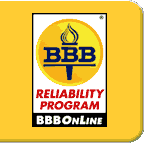MATHEMATICS
Note: A student who needs MATH 40, MATH 48, and/or MATH 49
must complete the
course(s) within his/her first three quarters with a C or better. A student
whose degree
plan requires only MATH 100 must complete MATH 40 within his/her first three
quarters with a C or better. Prior to beginning the math sequence, students
should seek
counseling from their faculty advisors for proper placement.
MATH 40 Basic Mathematics, 4 units
Prerequisite : Based on score of numerical section of entrance examination.
A review of the number system and operations of numbers. Fundamentals of
addition, subtraction , multiplication, division , fractions, decimals and
percentages
are stressed by application; practical applications of arithmetic are used for
illustrations of principles, introduction to elementary algebra and geometry .
MATH 48 Introductory Algebra, 4 units
Prerequisite: MATH 40 with a C or better; or passing score on numerical section
of entrance examination.
An introduction to algebraic concepts. Topics to be
discussed include the number
system and the properties of real numbers , solving linear equations and
inequalities in one variable , graphs and linear equations, systems of equations
in
two and three variables, polynomials and exponents, and an introduction to
factoring .
MATH 49 Intermediate Algebra, 4 units
Prerequisite: MATH 48 with a C or better; or passing score on elementary algebra
section of entrance examination.
A continuation and more advanced treatment of algebraic concepts. Topics to be
discussed include an in-depth exploration of factoring, rational expressions ,
functions, roots and radicals , the quadratic formula and quadratic equations,
and
sequences and series.
MATH 100 College Math, 4 units
Prerequisite: MATH 40 with a C or better; or passing score on the numerical
section of entrance examination. (Not open to students already having credit for
MATH 101 or equivalent.)
A course to acquaint students with mathematical concepts and theories with the
purpose of developing and increasing skills in mathematical, quantitative, and
critical thinking and reasoning, as well as problem- solving skills . (Does not
satisfy the math requirement for all majors.)
MATH 101 College Algebra, 4 units
Prerequisite: MATH 49 with a C or better; or passing score on intermediate
algebra section of entrance examination.
An in-depth treatment of algebra with the intent of advancing students’
mathematical, quantitative, critical reasoning, and problem-solving skills. It
will
include but not be limited to quantitative problem-solving techniques, rational
expressions and equations, functional notation, exponential and logarithmic
equations, polynomials, analytic geometry, linear and nonlinear equations and
inequalities , and sequences and series.
MATH 110 Calculus, 4 units
Prerequisite: MATH 101 or passing score on college algebra section of entrance
examination.
A course in the fundamental concepts and applications of calculus to problems in
business and the social sciences. The course covers the following topics:
functions
and graphs , limits and continuity, the derivative and its applications in
maximization and minimization, exponential and logarithmic functions , definite
and indefinite integrals, and functions of several variables.
MATH 120 Statistics, 4 units
Prerequisite: MATH 101 or passing score on college algebra section of entrance
examination.
A beginning course in statistics. The course covers the following topics:
describing sets of data, probability, and probability distributions of discrete
and
continuous random variables, measures of central tendency and variability, the
Poisson, binomial and normal probability distributions, hypothesis testing,
sampling techniques and regression and correlation, inferences from large and
small samples.
MATH 199 Special Problems in Mathematics, 1-6 units
Prerequisite: MATH 101 and others as determined by the Liberal Arts faculty.
Small groups and individualized programs of study in mathematics designed to fit
the special interests or needs of students.
MATH 210 Quantitative Methods, 4 units
Prerequisite: MATH 101 or passing score on college algebra section of entrance
examination.
Study of the algorithms, terminology and techniques of quantitative decision
making. The course covers the following topics: linear programming, duality and
sensitivity analysis and decision making under uncertainty. The use of the
computer as an aid to decision making will be discussed.



